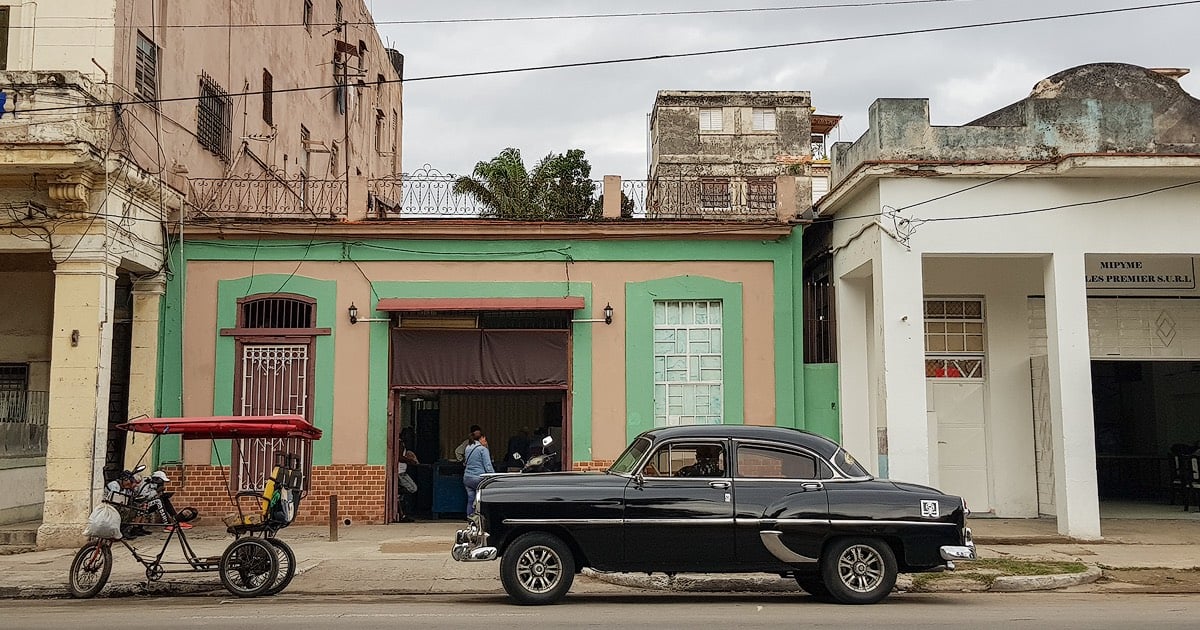The Cuban regime intends to temporarily limit the prices of six basic foodstuffs for Cuban citizens: chicken, oil, pasta, powdered milk, detergent and sausage. This announcement was made by the Finance Minister Lourdes Rodríguezat a recent meeting with representatives of Micro, small and medium-sized enterprises (Mipymes) and the General Directorate of Imports of the Ministry of Foreign Trade. The entrepreneurs were selected by the tax administration. “In this way, we were able to reach each and every one of them,” explained Rodríguez.
In the discussion, which was accessible from CyberCubathe minister announced that retail prices would be capped for six items selected through a survey, with ground meat coming close behind sausages. The final choice fell on sausages because ground meat can be of different origins and there is a significant price difference. Consequently, the maximum retail price for chicken (pack of chicken legs and drumsticks) would be set at 680 pesos per kilogram (310 pesos per pound), for milk powder at 1,675 pesos per kilogram, for noodles (spaghetti, etc.) at 835 pesos per kilogram, for sausages at 1,045 pesos per kilogram, for washing powder at 630 pesos per kilogram, and for soybean oil at 990 pesos per kilogram. These prices, the minister clarified, “will be published before their implementation.”
The Minister of Finance assured that these prices were established after analyzing the import costs indicated by private importers in the second half of 2023 and the first quarter of 2024. This point was very controversial among the representatives of small and medium-sized companies, who argued that in an unstable international context with fluctuating prices, it was difficult to follow the Government’s proposals, although some expressed their willingness to comply in the interest of the population. However, they highlighted three structural problems of the Cuban economy: the distortion of the exchange rate, the tax pressure on Mipymes and the lack of fuel, which makes it difficult to transport goods within the island and even the removal of containers from the Port of Mariel.
Temporary measure amid economic difficulties
In any case, the minister described these price caps, which are nothing new in Cuba, as measures to curb the accelerated rise in prices in the economy. Rodríguez clarified that this is a temporary measure, as the country’s pricing policy is moving towards “price decentralization,” which essentially means complying with market laws, where prices regulate themselves based on supply and demand.
In theory, the measure is also intended to curb inflation, which stood at 31% in Cuba at the end of May, almost ten times higher than the 2.6% in Europe and the United States in the same month. To explain why products such as oil could become more expensive despite the price caps, the minister explained that this is due to the fact that “stocks are currently being held that were acquired at a certain time at lower prices.”
While she acknowledged that it is a challenge to sell products across the island at a uniform maximum price, regardless of transport costs (transporting goods from Havana to Guantánamo is not the same as distributing them in the capital), she acknowledged that there is no “quick solution” to this problem.
The meeting also acknowledged that there is a shortage of products such as chicken, oil and milk powder, which are currently “not found on the island”. Cuban entrepreneurs are concerned about transportation, paying VAT and whether stores in MLC (Cuban Convertible Peso) will continue to compete with them through higher prices, as is currently the case with many products.
At the beginning of the meeting, the Finance Minister referred to a new resolution that stipulates that Mipymes, which supplies state-owned companies, cannot earn more than 30% on its trading exchanges. This regulation, which was already in place in Official JournalIn official jargon, this defines the maximum benefit of thirty percent (30%) when state units award economic contracts to non-state forms of administration.
Predictably, the government does not present this as a limitation for Mipymes, but for state-owned companies. “It does not limit the income of non-state companies, but the expenses of state-owned companies,” said the finance minister, assuring that state-owned companies paid 10,000 million pesos to Mipymes in 2023 and that in May this figure was already around 4,000 million pesos. If this trend continues, the state would close the year with purchases from the private sector valued at 12,000 million pesos.
This rule, which limits Mipymes’ profit to 30 percent, comes into force on July 1.
Understanding Cuba’s economic policies
This section aims to provide clarity on the Cuban government’s recent economic measures, focusing in particular on price caps and their impact on the Cuban economy and its citizens.
Why does the Cuban government cap the prices of essential goods?
In order to control rising prices and inflation, the government is capping prices. Its aim is to make essential goods more affordable for the Cuban population.
Which products are affected by the price caps?
The price caps apply to chicken, oil, pasta, milk powder, detergent and sausage.
Are these price caps permanent?
No, the price caps are a temporary measure. The government is moving towards price decentralization, where prices are regulated by market forces.
What challenges do small and medium-sized enterprises (Mipymes) face in Cuba?
Mipymes faces challenges such as exchange rate distortions, high tax pressure and fuel shortages, which make it difficult to transport goods within the island.




